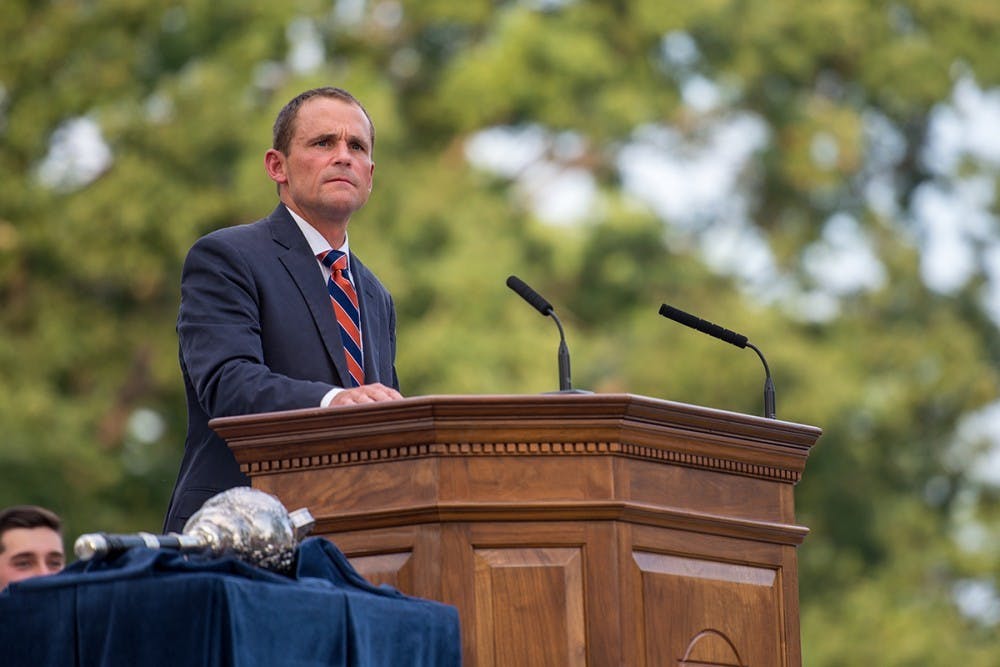University President Jim Ryan spoke with CBS “Face the Nation” moderator Margaret Brennan, a University alumnus, Sunday morning about how COVID-19 is impacting plans to bring students back to Grounds. Acknowledging that the University has not canceled fall semester, or even all summer session courses, Ryan said that reaching a decision is dependent on guidelines determined by public health concerns, which could require University-wide testing, the ability to contact trace individuals affected by the virus and the means to isolate exposed individuals.
“We're also going to need to enact a bunch of social distancing protocols in terms of how far away students need to be from each other in the classroom or in dining halls,” Ryan added. “As you can imagine, it's a complicated task. College campuses are a difficult and challenging place for contagious viruses.”
Dean of Students Allen Groves released a survey to undergraduate students May 3 soliciting responses to three potential scenarios that could become a reality for the fall semester, such as delaying the start of classes, starting normally but gradually transitioning into in-person classes or splitting “intensive” courses into two seven-week modules to allow other classes to be taught in person. Additionally, the survey suggested that a number of mitigation efforts may be required of students — ranging from frequent hand washing, to social distancing and taking one’s temperature regularly.
“I don't imagine, even if we have all students back on Grounds, it will look like a normal semester,” Ryan said. “It will not be a normal semester next fall, regardless of which path we follow.”
Additionally, Ryan said he maintains close contact with the Department of Education and colleagues at other institutions throughout the Commonwealth, expressing hope for a defined set of guidelines for all universities to recognize but noting that circumstances such as enrollment size and location could mean different schedules for opening up different schools.
Ryan reiterated to Brennan that, no matter what the plan for the fall semester may be, international students, out-of-state students and even local students who may not be able to safely return to Grounds for the fall will all have access to education via online learning. Despite the uncertainty of what’s to come, Ryan indicated that the yield of incoming first-year and transfer students who accepted offers of admission is up from previous years.
Brennan also inquired as to why the University, which has an endowment of $9.6 billion, has not followed suit of other major universities that have declined funding from the federal Coronavirus Aid, Relief and Economic Security Act.
In an April press conference, President Trump suggested that Harvard University, which has an endowment of $40.9 billion and was allocated $8.6 million from CARES, should decline the support as it was not intended for “big public companies.” Soon after, Harvard announced that it would not “seek or accept” the funding.
Ryan said the University, which was allocated almost $12 million from CARES, accepted the funding because “it is helping our students.” The Act requires that half of the funds are allocated directly to students with financial need — the remaining half will go toward recovering the $12 million the University put towards rebating housing and dining funds.
“We're really passing on these savings to our students,” Ryan said. “And I think that's a good thing to do.”







